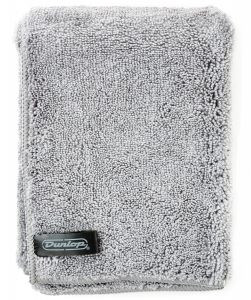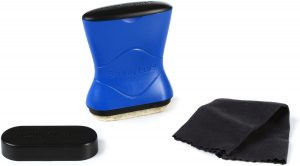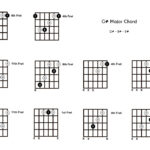Guitar strings are the voice of your instrument. They are responsible for the tone and clarity that define your guitar’s sound. Just like any other part of your guitar, strings require regular maintenance, and cleaning them is a crucial step in preserving your instrument’s sonic quality and extending the life of your strings. If you’re looking to maintain that bright, crisp tone without constantly replacing strings, understanding how to clean your guitar strings, and especially how to use a Guitar String Cleaner, is essential.
Why Clean Your Guitar Strings? The Tone Truth
The vibrancy of new guitar strings is unmistakable. That bright attack and clear tone are due to the strings’ ability to vibrate freely at their full frequency range. However, this pristine state is short-lived. As you play, your fingers deposit oils, sweat, dead skin cells, and grime onto the strings. These unwanted guests accumulate, particularly within the windings of the strings, dampening their vibration.
Think of it like this: imagine applying a layer of muffling material to a bell – the sound will become duller and less resonant. Similarly, dirty strings lose their high-frequency response, resulting in a muffled, lifeless tone. Sustain suffers, and the overall sonic character of your guitar becomes muddy.
Cleaning your guitar strings is the antidote to this tonal degradation. It removes the build-up of grime, allowing the strings to vibrate more freely and restoring that desired clarity and sustain. While changing strings is always an option, regular cleaning, especially with a dedicated guitar string cleaner, can significantly prolong their lifespan and maintain your guitar’s optimal sound.
When is Cleaning Necessary? Listen to Your Strings
Knowing when to clean your guitar strings is as important as knowing how. Here are some telltale signs that your strings are crying out for a cleaning session:
- Dull Tone: This is the most obvious indicator. If your guitar sounds less bright and resonant than it used to, especially if it’s lost its high-end sparkle, dirty strings are likely the culprit.
- Reduced Sustain: Notice your notes fading out quicker than usual? Grime buildup dampens string vibration, shortening sustain.
- Grime Build-up: Visually inspect your strings, especially around the areas where you frequently play. Do you see visible dirt, discoloration, or a sticky residue?
- Sticky or Sluggish Feel: Dirty strings can feel less smooth and responsive under your fingers, sometimes even feeling slightly sticky.
- Before Shows or Recordings: For peak performance in critical situations like gigs or recording sessions, cleaning your strings ensures your guitar sounds its absolute best.
Regular players should aim to clean their strings regularly, even if they don’t notice drastic tonal changes. Think of it as preventative maintenance – keeping your strings clean prevents significant tone loss and extends their life in the long run.
Step-by-Step Guide to Cleaning Guitar Strings
There are several effective methods for cleaning guitar strings, ranging from simple everyday practices to more intensive cleaning routines.
1. The Daily Wipe-Down: Your First Line of Defense
The simplest and most frequent cleaning method is wiping down your strings after each playing session. This preventative measure removes fresh sweat and oils before they have a chance to accumulate and harden.
- Use a Microfiber Cloth: A microfiber cloth is ideal as it’s soft, non-abrasive, and won’t leave lint or residue on your strings.
- Wipe After Every Session: Make it a habit to wipe down the strings, fretboard, and even the guitar body after you finish playing.
- Technique: Use the cloth to gently wipe along the length of each string, both on the top and underside, applying slight pressure.
 Dunlop Microfiber Cloth
Dunlop Microfiber Cloth
2. Deep Cleaning with Guitar String Cleaner Products
For a more thorough cleaning, especially when strings are visibly dirty or have lost significant tone, a dedicated guitar string cleaner is highly effective. These products are specifically formulated to dissolve grime and oils without damaging your strings or fretboard.
- Choose a Reputable Brand: Opt for well-known brands of guitar string cleaner for reliable results.
- Application:
- Protect your fretboard: Place a soft cloth or paper towel underneath the strings, near the fretboard, to prevent cleaner from dripping onto the wood, especially if you have an unfinished fretboard (like rosewood or ebony). Finished fretboards are more resistant, but protection is still recommended.
- Apply the cleaner: Apply a small amount of guitar string cleaner to a clean microfiber cloth (some cleaners come with applicators).
- Clean each string: Pinch the string between the cloth (with cleaner) and your thumb and run the cloth up and down the length of the string, applying gentle pressure. Rotate the cloth to use a clean area as you go.
- Wipe off excess: Use a separate clean, dry section of the microfiber cloth to wipe off any excess cleaner and loosened grime.
- Repeat if necessary: For heavily soiled strings, you may need to repeat the cleaning process.
 MusicNomad String Fuel
MusicNomad String Fuel
Guitar string cleaners often contain lubricants that not only clean but also help strings feel smoother and reduce finger noise. They can be a valuable addition to your guitar maintenance routine.
3. Boiling Bass Strings: A Deep Clean for Bassists (Use with Caution)
Boiling bass strings is a somewhat controversial but sometimes effective method for deep cleaning bass guitar strings. It’s typically reserved for bass strings because their thicker gauge makes them more resilient to this process. However, it should be done with caution and sparingly.
- Procedure:
- Remove Strings: Carefully remove the bass strings from your instrument.
- Boil Water: Bring a pot of water to a boil.
- Submerge Strings: Carefully place the strings into the boiling water.
- Boil for 10-15 minutes: Let the strings boil for about 10 to 15 minutes. This helps to loosen and dissolve built-up oils and grime.
- Remove and Dry: Use tongs to carefully remove the hot strings from the boiling water. Be cautious!
- Cool and Dry: Allow the strings to cool completely and dry thoroughly before reinstalling them on your bass.
Important Cautions for Boiling Strings:
- String Integrity: Boiling can weaken strings over time, making them more prone to breakage. Don’t boil strings excessively or too frequently.
- Rust Risk: Ensure the strings are completely dried after boiling to prevent rust.
- Emergency Measure: Boiling is generally considered a last resort for heavily soiled bass strings when you’re unable to replace them immediately. A dedicated guitar string cleaner is generally a safer and more convenient option.
What NOT to Use: Avoid Household Cleaners
Under no circumstances should you use household cleaners like bleach, soap, detergents, or general-purpose cleaners on your guitar strings. These products are not designed for musical instruments and can be highly damaging.
- Corrosion and Damage: Harsh chemicals can corrode the metal of your strings, leading to premature breakage and poor tone.
- Fretboard Damage: Household cleaners can seep into the fretboard wood, drying it out, damaging the finish, or causing discoloration.
- Hardware Damage: Cleaners can also damage the finish on your guitar’s hardware (bridge, tuners, etc.).
Stick to products specifically designed for guitars, especially guitar string cleaners, and microfiber cloths for safe and effective cleaning.
Choosing the Right Guitar String Cleaner
With various guitar string cleaners available, consider these factors when choosing the best product for your needs:
- Type:
- Spray Cleaners: Convenient for quick application and often include lubricants.
- Liquid Cleaners: Applied with a cloth, offering more control and sometimes more concentrated cleaning power.
- String Cleaner Kits: Often include cleaner, lubricant, and applicator cloths.
- Ingredients: Look for cleaners formulated to be safe for guitar strings and fretboards.
- Lubrication: Many cleaners also act as string lubricants, reducing friction and finger noise. This can be a desirable added benefit.
- Reviews and Recommendations: Check online reviews and ask fellow guitarists for recommendations on trusted brands and products.
Pro Tips for Keeping Your Strings Cleaner, Longer
Beyond cleaning, proactive habits can significantly extend the life and tone of your strings:
- Wash Your Hands: Always wash your hands thoroughly with soap and water before playing guitar. This removes oils, sweat, and dirt before they transfer to your strings.
- Wipe Strings Regularly: As mentioned, the daily wipe-down is crucial.
- Use String Lubricants: String lubricant sprays (some are combined with cleaners) can create a protective barrier against grime and reduce friction.
- Store Your Guitar Properly: When not playing, store your guitar in its case or gig bag. This minimizes exposure to dust, humidity, and temperature fluctuations that can affect strings.
- Consider Coated Strings: If you play very frequently or have particularly corrosive sweat, consider using coated strings. These strings have a micro-thin coating that repels dirt and moisture, extending their lifespan, though they may have a slightly different feel and tone compared to uncoated strings.
Image alt text: Tone Finger-Ease string lubricant spray can, a popular product for reducing string friction and keeping strings clean.
Conclusion: Clean Strings, Clear Tone, Happy Playing
Maintaining clean guitar strings is a simple yet incredibly effective way to enhance your playing experience. Regular cleaning, especially with a quality guitar string cleaner, will not only preserve the bright, clear tone of your instrument but also extend the life of your strings, saving you money and ensuring your guitar always sounds its best. Make string cleaning a regular part of your guitar care routine, and you’ll be rewarded with consistently great sound and a more enjoyable playing experience.

